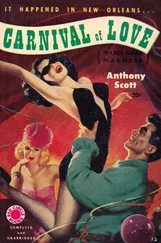There were other shaky moments, of course. Paying my hotel bill took all my money and I didn’t have enough cash to buy the ticket to Stoughton. What I wanted to do was cash in my return ticket to Chicago, which was worth about forty-five dollars, but Jade insisted on paying my bus fare. It wasn’t a generous impulse, it seemed to me. The idea of my ticket to Chicago comforted her and her need of it galled me. It was things like that. Our coming into and going out of focus: constantly, we were reminded of how partial our reunion still was. The bus was crowded nearly to capacity, which astounded me. I looked up and down the aisles, shaking my head. “We were lucky to find a seat together,” I said. “I had no idea so many people would be going to Stoughton. It’s incredible.”
Jade frowned at me, took her hand from me. “This bus goes to a lot of places, David,” she said. “Albany, for instance. God. It’s so much like you to think that just because you’re going to Stoughton then everyone is.” I smiled because I actually liked the way Jade speculated about the details of my character, how the net of her intelligence would unexpectedly dip into me, present me with something that had been living and breeding beneath my surface. It was a part of our romance to speculate about each other and I smiled to hear her now, smiled and held the smile, and then felt it die because it took me that long to realize she had been speaking not out of interest but annoyance. And mistrust.
It was a flat, glarey day. The bus seemed to be leaking exhaust, maybe a rusted-out patch of flooring, and a faint stink of gas filled the inside of the bus. Jade held my hand and looked out the window and I leaned back in my seat and looked over her shoulder at her reflection in the tinted glass. Then she leaned her head on my shoulder and dozed off, and I once in a while kissed her hair as lightly as I could, careful not to awaken her. I was never completely certain she was asleep; she was breathing deeply and her face was slack, but the pressure with which she held my hand never let up.
I was living far outside the law and now there was no chance to sneak back into Chicago, to slip back into my old life. The parole was shattered into a thousand pieces and it could never be put together again. The tyranny of parole is the illusion of trust, and I had violated that trust with all the vehemence and flamboyance of my truest self. The judgment of the court—if they captured me and brought me into their domain—would be harsher regarding the broken parole than it had been when faced with a house burned into ruins and five lives hurtled to the very edge of extinction. If that one act earned me three years of constant care and an indefinite period as a ward of the court, then my running away would surely result in a sentence far, far harsher. The truth was that the course I had taken was perfectly outlined in a thin red line of absolute danger, but the truth beyond that was I didn’t much care.
My life over the past four years fell behind me and it was too early for memories or regrets. I was fleeing from one part of my life and toward another, and though I did not know with any certainty what this would finally mean, I nevertheless was wholeheartedly in flight: giddy, proud, and absolutely certain. The only longing I had for the life I was leaving behind was for Ann, and even there the regret was luminous with hope. It was not asking so awfully much of fate, I thought, that one day Ann might be a part of the world Jade and I were destined to create. And so I moved up north to Stoughton, Vermont, with Jade and lived in her house the best I could, making friends with her friends, adjusting my impulses to her schedule, and trying, because it was what she wanted, to find a place for myself in that community, a reason for being there beyond my love for Jade.
The house she lived in was a grander version of the house on Dorchester in Chicago, a Victorian monstrosity but this time swollen to gigantic proportions. The porch itself could have been used for band concerts; the mahogany ball on the banister to the staircase leading to the second floor was as large as a child’s skull. The house had been used for communal student living for at least ten years; it was a house with a reputation, legends, and even a name: Gertrude. People actually said, “I might rent a share in Gertrude next year,” and were actually understood. The place was filled with furniture. It was not the done thing to take your belongings out of Gertrude once they’d become a fixture. The living room was claustrophobic with sofas, ottomans, New England rockers, and potted plants. The kitchen was bursting with the gadgets left behind by the occasional gourmet who drifted in and out of the house’s spell. There were electric toothbrushes galore and, I later found out, even a communal supply of vibrators left behind by women who went on to presumably happier sex lives. One of the Gertrude legends was that on Sunday mornings the place sounded like the inside of an enormous hive from the collective hum of a half dozen vibrators.
Jade had one of the worst rooms in the house, a tiny, perfectly square lavender room with a small, too-soft bed and a dull view of the street from its single window. The room’s saving grace was supposedly its close proximity to the second-floor bathroom. Jade herself said, “Well, at least it’s near the bathroom,” and when one of her housemates, Colleen MacKay, was discussing the situation with me one day, she said, “Well, at least Jade’s room is near the john.” This small consolation had probably been described in similar terms since the first student was stuck in that room—and perhaps when the house was occupied by a large, prosperous family man, the middle son who was forced to occupy that room was cajoled with the same shaky reasoning. Of course, I hardly cared what room we stayed in. I would have gladly slept in the tub, or outside, or hanging from my thumbs, for that matter. But it was made clear to me that Jade had been assigned that particular room because she was hardly ever at home anyhow and when our conjugality was recognized—and rewarded!—with a transfer to the attic bedroom, which was vast and private, I felt a deep, vindicated joy that had me literally biting my lip to stop from crying. How kind I thought they were to make new arrangements for us. It was Colleen MacKay who moved out of the attic bedroom. “Don’t thank me now,” she said. “Wait till winter when you’re freezing your asses off up there. Then thank me.” It was supposed to take the softness out of the gesture but it only further weakened my knees. Wait until winter? People were already treating us as if we obviously had a future.
Life was difficult, awkward; Jade and I experienced the confusion of people whose lives have moved on a faster course than their imaginations. There were lapses into silence that suddenly exposed how fragile our entire enterprise was, collisions of will that came from our unfamiliarity with each other in the practical world. There was the trouble with my panic at finding Jade up to her hips in a stream of people, friends and enemies, lovers, deadlines, private jokes, rivals, and debts. But for the most part, I was filled with wonder at how happy we managed to be. We made love on cool lawns at night. We bathed each other and sang in whispers into each other’s ears. I cooked my half dozen specialties for her and flushed with pleasure when I noticed how pleased she was that I got along with her friends. We took rides in a borrowed Saab, played tennis on a private court owned by a professor of music theory, and when I got a job at a local men’s clothing store Jade met me for lunch every day: tuna sandwiches and iced tea, which we ate on the lawn of an immense Presbyterian church, a crazily huge Gothic structure that could have simultaneously baptized all the children of Vermont.
Читать дальше












